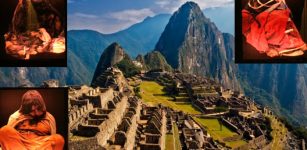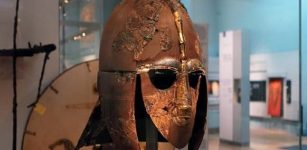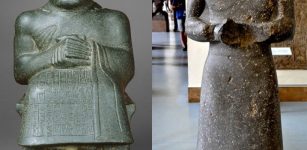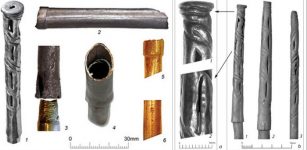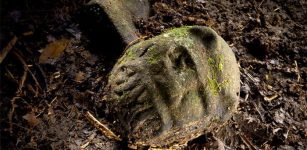Mummy Of A High-Status Woman Buried About 4,500 Years Ago At Aspero, Peru – Found
MessageToEagle.com – Remains of a high-status woman buried about 4,500 years ago have been discovered by archaeologists at the archaeological site of Aspero —Caral civilization’s fishing town.
The discovery provides new insights into the ancient Caral civilization.
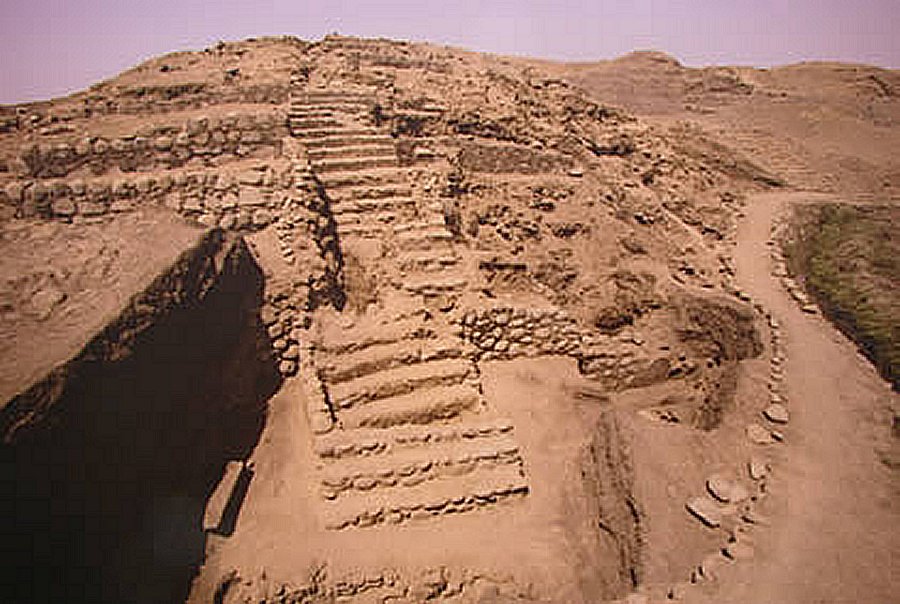
The body was unburied from Huaca of the Idols (“Huaca de los Idolos”), one of the two two huge platform mounds located at the site of Aspero, which covers an area of 35 acres. Another mound is called Huaca de los Sacrificios (“Huaca of the Sacrifices”). Both mounds are accompanied by fifteen smaller mounds, plazas and a number of terraces.
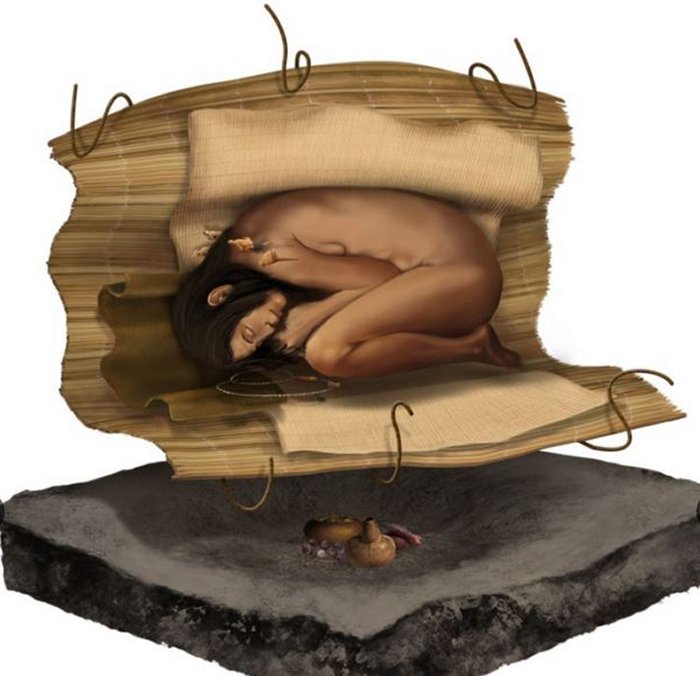
Based on archaeological data from one of the largest mounds, Aspero dates back to about 3000 BC.
Along with the mummy of the middle-aged woman, archaeologists also unearthed artifacts, such as carved objects of birds and monkeys, in the grave in the ancient fishing village of Aspero.
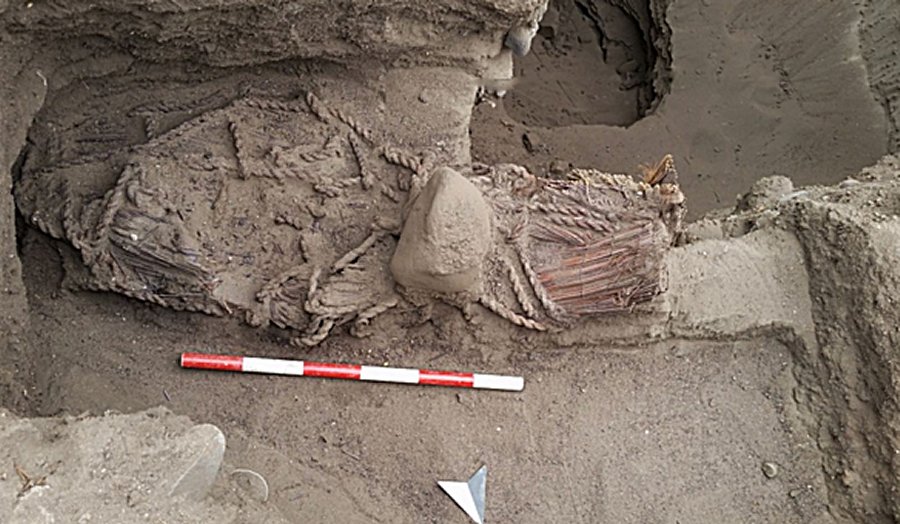

See also:
Caral – Site Of The Oldest Known Civilization In The Americas – Inspires Modern Architects
This find shows evidence of gender equality, that is, both women and men were able to play leading roles
and attain high social status more than 1,000 years ago, according to Ruth Shady, a Peruvian anthropologist and archaeologist and the founder and director of the archaeological project at Caral.
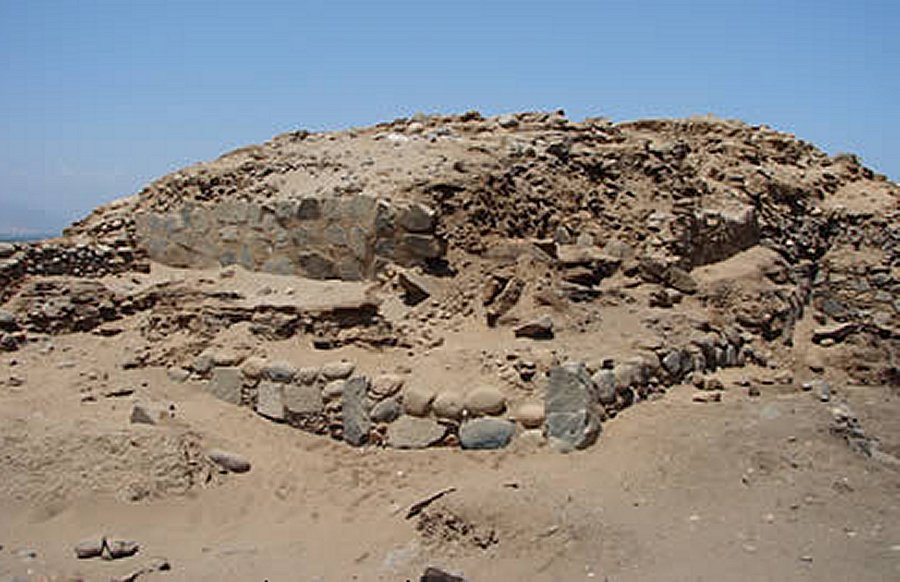
The items were brought from different places and the woman, who was 40 to 50 years old, was of important social status.
The artifacts suggest possible trade between Aspero and the city of Caral, the most ancient civilization of its kind of the Americas, which was about 14 miles (22 km) away.
MessageToEagle.com
Expand for references


